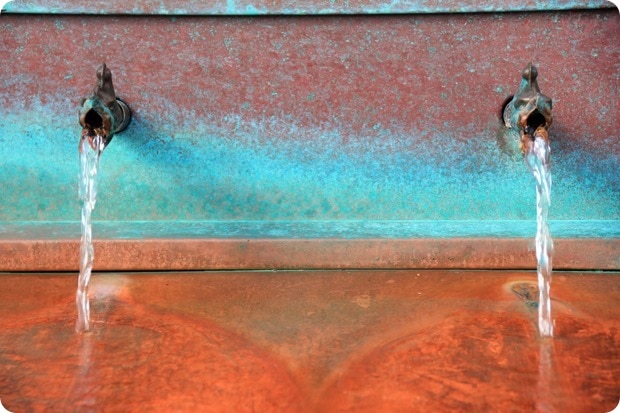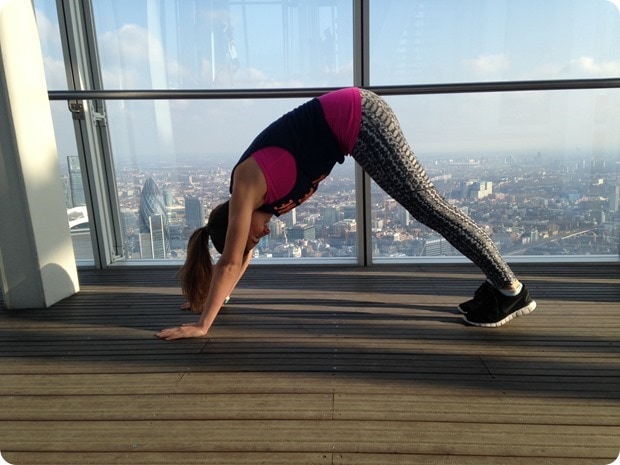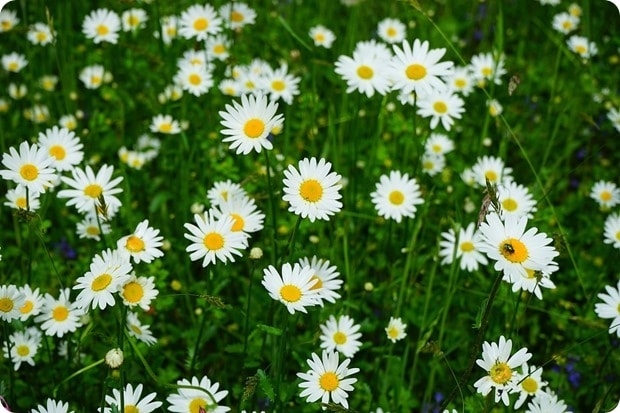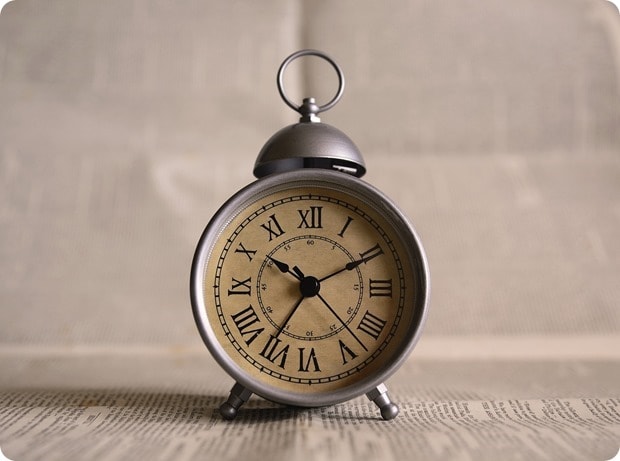Hi from Colorado Springs, my friends! I flew out here on Friday for the annual symposium of the Sports, Cardiovascular, and Wellness Nutrition (SCAN) practice group that’s part of the Academy of Nutrition and Dietetics, but am staying an extra day to enjoy the area with friends. (You can see what I’m up to on Instagram, Facebook, and Twitter, as usual!) As such, no new post from me today, but I have a great guest post from an RD-to-be to share with you – all about natural headache remedies. I hope you find it useful and interesting! I’ll be back at some point tomorrow afternoon from the plane with a recap of the Colorado adventures. Until then!
—-
Natural Headache Remedies
by: Charlie Watson of The Runner Beans
Hi there Fannetastic Food readers, I’m Charlie from therunnerbeans.com and I’m so excited to be guest posting on one of my favourite blogs.
I’m a marathon runner, a fitness class junkie and a wannabe triathlete. I live in London and strive to live my life with an 80/20 balance in all things, but food in particular. I’m currently studying to go back to school to become an RD, as well as working full time and blogging regularly. Oh and I suffer from chronic headaches and migraines.
I typically have a headache of varying degrees of intensity about 5 days a week, although I’m lucky to only suffer migraines about twice a month (mostly when I’m really stressed or running a marathon the following day!) I know I’m not the only one who suffers from headaches that doesn’t want to just keep popping pills, so I thought I would share with you some healthier, more holistic approaches to help avoid and relieve your headaches.
· Get your eyes tested. Even if you think your vision is fine, you might be straining the muscles in your eyes which can build up throughout the day, causing the ‘sore eyes, sore head’ that a lot of us get after staring at a computer all day.
· Know your hydration levels. Drink at least 2 litres (if not more) of water a day. Not tea, not Diet Coke, but water!
· Try a cup of coffee. This one sounds weird but studies have shown that caffeine can be beneficial to curing headaches, which is why it’s an ingredient in many painkillers. It can constrict the blood vessels and decrease the pain. I actually often try an iced coffee or a coconut water and coffee mix if I wake up with a headache. The effectiveness of caffeine varies from person to person, though, and it’s worth noting that it can actually trigger migraines in some people. You can read more about Caffeine and Migraines in this paper by Dr Robert E Shapiro (PHD) and Dr Robert Cowan.
· Get outside and breathe in some fresh air. If you have a headache, often all you may want to do is lie in bed, but getting some air can really help relax you, increase oxygen intake and take your mind off things a little.
· Along the same lines, yoga can be a brilliant restorative activity when you have a headache, reducing stress in the body as well as mind. Just be careful if you’re taking a class as some moves may aggravate your headache; in particular, classes focusing on headstands are best avoided. Here’s a great list of yoga poses that can help headaches.
· Surprisingly enough, exercise can work as a great healer too. It gets the blood pumping and the oxygen moving throughout the body. Exercise also releases natural pain relief in the form of endorphins and natural anti-depressants called enkaphalins. Whilst I’d avoid hard exercise if you feel nauseous or dizzy, it can often be just the thing to ease a stubborn headache.
· Work out what your triggers are and avoid them where possible. I know red wine gives me an instant headache, so drinking it just isn’t worth it!
· Target the key pain points and massage them. Whilst this can be painful, it can help ease the tension in the area. You could also book in to see a physio or chiropractor that specialises in headaches.
· Basil oil can be a muscle relaxant and work particularly well in easing tension headaches. Drizzle some over pizza, pasta or salad at dinner to relax your muscles after a stressful day. The antioxidants are most powerful in extracts or oils, but you can also try using basil leaves (just chew them or add them to salad/pizza, etc.).
· Consider acupuncture if you are a chronic headache sufferer. Whilst I haven’t tried this yet, I’ve had friends that speak highly about the power of acupuncture; just make sure you find a reputable acupuncturist, and preferably one that specialises in headache relief.
· Add Buckwheat into your meals! This grain contains Rutin, a flavonoid found in plants that has antioxidant properties that counteract damage to cells. Studies in Taiwan have shown a link between flavonoids and inflammation, a leading cause of headaches. Find out more here.
· A study in the UK showed that Feverfew (a small bushy plant in the daisy family) helped ease migraine pain in 70% of the 270 people in the study, and subsequent studies have shown that taking dried feverfew everyday could help ease migraine pain. Another study found that a combination of feverfew, magnesium and vitamin B2 led to a 50% decrease in migraines in the 49 participants. Here’s a great summary of the benefits, uses and doses of Feverfew.
· Add cherries to your fruit bowl; the anthocyanins and bioflavonoids found in cherries have been linked to reducing inflammation and therefore helping to eliminate migraine headaches.
· Eat more Omega-3 fatty acids. Found in oily fish, flaxseeds and walnuts, omega-3s contain anti-inflammatories.
· Take magnesium supplements. Although they won’t work for everyone, magnesium has been hailed as a migraine miracle by some. Scientists have found that many people that suffer from migraines have lower magnesium levels that non-sufferers, and as magnesium regulates how your blood vessels work, it can reduce pain and calm your nervous system. Another great source of magnesium is coconut water, which is great for helping you stay hydrated too.
· Invest in some essential oils. Peppermint essence contains menthol which helps relax and ease tension headaches, plus muscular aches and pains (best avoided at night, though, as it is a stimulant). Lavender oil is a natural sedative that contains anti-inflammatory properties great for tackling evening and nighttime headaches. Eucalyptus oil is another anti-inflammatory that can be especially helpful in easing sinus headaches. You can use the essential oils to massage into your head/temples, in a room diffuser or on a tissue to inhale a little at time.
· Get enough sleep. I know that I’m most prone to headaches and migraines when I’m tired or have been woken in the middle of the night. Aim to go to bed and get up at the same time everyday if possible, and snooze for the recommended 8 hours a night.
· Take a computer and social media break- staring at a screen, especially a small phone screen all day isn’t good for us. Try to take regular breaks, or put your phone away completely if your head is pounding.
Thanks so much for reading, and if you have any questions, feel free to email me at [email protected]. I’m also on twitter @charliedwatson and Instagram @therunnerbeans – come say hi!
Posts similar to this one that you might also like:
- The Sneaky Thing That Might Be Causing Your Stomach Pain
- What Oils To Use When (e.g. high heat cooking vs. baking vs. salad dressing)
- Trans-Fat: What It Is & How and Why To Avoid It
- How to Interpret Blood Test Results
- 10 Immunity-Boosting Foods for Flu and Cold Season
- Quinoa Nutrition Fun Facts and Recipes
- Is Coffee Healthy? (guest post)
- Health Benefits of Fermented Foods (guest post)
- 4 Myths About Eating Gluten Free (guest post)
- Why You Should Eat More Omega-3 Fats (guest post)
- How to Use Essential Oils for Health (guest post)












